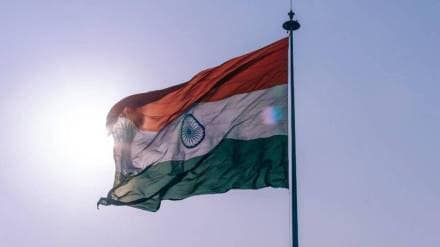By- Abhimanyu Bharti
India, often celebrated as the world’s largest democracy, boasts a mosaic of cultures, languages, and religions. This diversity is its strength and a source of complexity in navigating the country’s political landscape. This multifaceted diversity, deeply rooted in India’s history, has shaped a kaleidoscope of identities and ideologies that coexist within its boundaries.
Centuries of historical events have left indelible imprints on India’s political psyche. Colonial rule, the struggle for Independence, and the subsequent partition have etched deep fault lines that still resonate in contemporary politics. The partition of India in 1947, resulting in the creation of Pakistan, delineated religious identities and set the stage for ongoing debates on secularism, nationalism, and communal harmony.
Spanning across ideologies, religions, cultures, and regional aspirations, the nation’s discourse, policies, and collective identity are shaped by politics. An understanding of the intricacies, historical underpinnings, and contemporary dynamics of this political chasm is crucial in comprehending India’s complex socio-political fabric.
Identity politics, deeply entwined with religious, linguistic, and caste identities, often takes centrestage in Indian politics. The intersectionality of these identities fosters a complex web of affiliations and alliances that shape electoral outcomes and policy priorities. The tussle between regional aspirations and national integration adds another layer to this multifaceted political landscape. The political divide in India is not merely a clash of ideologies but a manifestation of deep-rooted societal divisions.
Debates on nationalism, secularism, social justice, and governance philosophies have fractured the public discourse. These divergences occasionally trickle down to communities, fueling tensions and sometimes undermining the fabric of unity in diversity that India cherishes. Religious diversity, while a source of strength, has also been manipulated for political gains, leading to communal tensions. Cultural differences, often politicised, contribute to the fracture, sometimes overshadowing the ethos of unity in diversity that India prides itself upon. These fault lines, if not addressed, threaten the very fabric of the nation.
The implications of this politics are deeply felt in the corridors of power. Ideological differences often translate into legislative gridlocks, hindering effective policy-making and governance. The adversarial nature of politics sometimes overshadows the imperative for collaborative decision-making, impacting the nation’s progress on crucial issues.
The advent of the Information Age has reshaped the dynamics of India’s political divide. Social media platforms, while empowering voices and fostering awareness, have also become breeding grounds for echo chambers and polarised opinions. The dissemination of information, often laced with biases, has intensified existing divisions and contributed to the polarisation of public discourse.
The political divide in India is an intricate interplay of historical legacies, diverse identities, and contemporary socio-political dynamics. It encapsulates both the challenges and opportunities that define the nation’s journey toward unity and progress. Embracing the diversity of opinions, nurturing inclusive governance, and fostering a shared vision of a harmonious and prosperous India is imperative in weaving together the myriad threads of this diverse nation into a unified fabric.
India’s strength lies in its diversity, yet this diversity should not be a cause for division. The onus lies on every citizen, institution, and community to transcend the political rifts and nurture a more cohesive nation. In this journey, let us strive for an India where every voice matters, where differences are celebrated, and where unity emerges from a collective commitment to progress and inclusivity. Only then can India truly thrive as a beacon of diversity, resilience, and unity in an ever-evolving world.
(The author is Co-Founder, School Of Politics. Views expressed are the author’s own.)
Disclaimer: Views expressed are personal and do not reflect the official position or policy of Financial Express Online. Reproducing this content without permission is prohibited.
